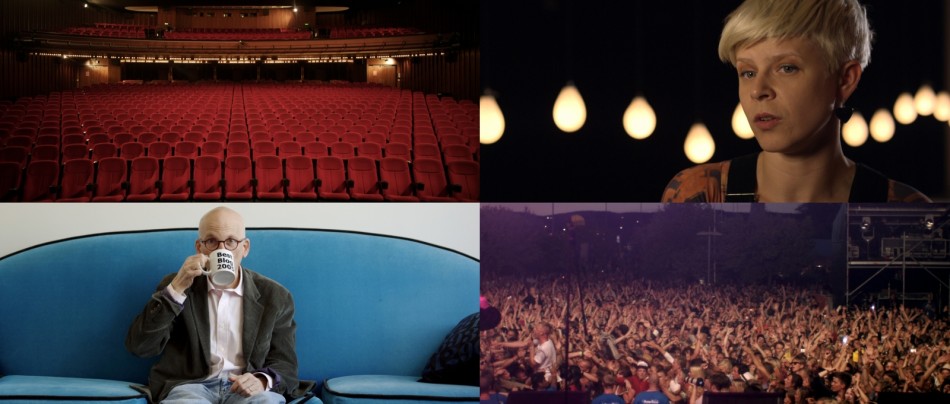
Is the Creative Class Surviving the Recession?
On October 1, 2011 the Salon wrote that the “Creative Class Is a Lie;” no less than 5 days later Richard Florida of The Atlantic retorted, saying, “The Creative Class is Alive.” Discrepancy? Yes. And, the question, which is more right?
The overall sentiments of Scott Timberg’s article at the Salon read like a direct hit to Florida’s theories in his book “The Rise of the Creative Class” (2002). Quoting massive newspaper layoffs, and small bookstores closing (and big bookstores for that matter, like Borders), along with record shops that are now out of business, Timberg says that being a “knowledge worker” no longer guarantees that you’ll have a job.
Timberg writes, “A fading creative class — experiencing real pain but less likely to end up in homeless shelters, at least so far, than the very poor — may not offer sufficient drama for novelists, songwriters or photographers.” In other words, we’re not hearing about it, but it is happening.
Timberg gives us a wake up call, reminding us that journalist and writer Allison Glock wrote, “Wasn’t the Internet supposed to bring this class into being?” Yes, it was. Well, at least that’s the positive spin, which the documentary film Press Pause Play trumpeted. Seth Godin seems almost the poster boy of the Internet’s success at championing the creative class, and Press Pause Play glances additional successful musicians, filmmakers and writers, who use the web to their advantage.
However, Andrew Keen, also in the above-mentioned documentary, and also a journalist (Timberg mentions in his article as well) believes we are in the dark ages of culture, saying that the unchecked democratization of the web is not good, not good at all. (See this here, “SXSW: Artists, Geeks and the Technological Future.”)
And, Timberg’s position coincides with 2009 NPR story “Piecing Together A Living In The ‘Gig Economy‘” from Tina Brown, founder of TheDailyBeast.com. In the gig economy people are sustaining themselves month to month, which hardly sounds like massive success.
So, how could the creative class actually be alive? Florida writes, “The creative class added nearly three million jobs between 2001 through 2010, growing jobs at a seven percent clip.” And he goes on to say, “And the sub-group of the creative class that spans arts and media grew at nearly double that rate (13.8 percent) over the same period. Average creative class wages increased by more than a third (34.5 percent), from $52,707 to $70,890, over this decade—more than any other major occupational group—and wages for arts and media creatives rose by 31.5 percent.”
Essentially Florida compares knowledge workers to blue-collars, and tells us that: although the creative class has lost jobs, it’s not as many jobs as other groups.
Florida reiterates the growth in creative fields, “But other segments of the creative class experienced substantial job growth. Jobs for producers and directors went up by nearly 80 percent (36,770 new jobs); art director jobs grew by 45 percent; nearly 60,000 new jobs opened up for graphic designers (up 45 percent); and audio and video equipment technician jobs increased by roughly 40 percent. But these changes pale in comparison to the decimation of the working class – spanning manufacturing, construction and transportation – which lost a staggering 6.2 million jobs.”
Finally, Florida reassures us that in fact the Bureau of Labor Statistics projects that over the next six years employment in the creative class will increase by 12 percent.
Overall, I’d say the creative class is alive, even if barely so, given the loss of jobs and restructuring of our economy; but it is a bright future ahead (the question is how far ahead) considering the remarkable adaptability of creatives. To the point, we are loosing creative jobs and we are gaining creative jobs.
Wherever we find ourselves, we creatives, once out of the darkness—and I firmly believe we are still in transition with regards to the Recession—I continue to assert that the appropriate freedom of expression—which creatives need—is dependent on our ability to speak the language of technology. That knowledge alone should secure a place for the creative class in the market for the next ten years, especially if China looks to the US to buy entertainment, such as TV and film.

Katy, We just read your article and wanted to thank you for a really good piece and for mentioning
PressPausePlay. It was interesting to see how you used it as an example and continued with the discussion. We also hope you enjoyed the film. The longer interactive version is available for free on our website http://www.presspauseplay.com, if you still haven’t seen that.
Trackbacks for this post